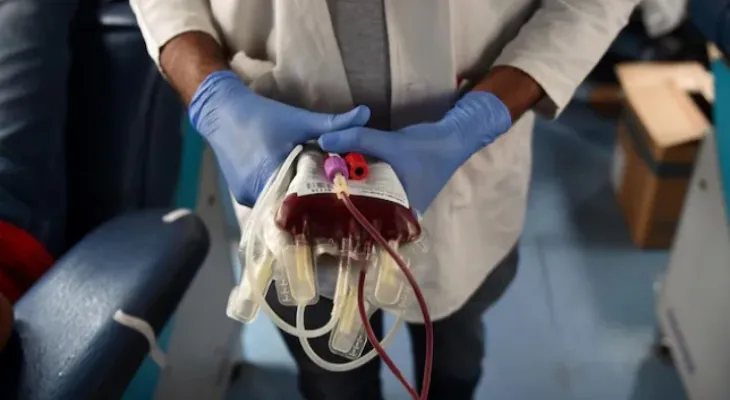Search here
Newspaper
Search here

Arab Canada News
News

Published: November 22, 2023
Héma-Québec will soon lift the restrictions that until now excluded blood donation from diabetic patients and those who have lived for a long time in the United Kingdom, France, or the rest of Western Europe. Some of these restrictions have been in place for more than 20 years.
On the one hand, people who lived or stayed in Western Europe, especially in France and the United Kingdom, in the 1980s and 1990s, will again be able to donate blood in Quebec starting December 4. This had been impossible for them since 1999.
In fact, with authorization from the Canadian Ministry of Health, Héma-Québec is lifting all restrictions related to the variant Creutzfeldt-Jakob disease (vCJD). This disease drew attention during the mad cow crisis that hit Europe nearly 30 years ago.
Canadian Blood Services has made a similar request to the Canadian Ministry of Health, according to our information. If approved, the lifting of restrictions regarding variant Creutzfeldt-Jakob disease (vCJD) will be expanded to include the entire country.
On the other hand, restrictions on diabetic patients imposed by Héma-Québec will be eased to align with those of Canadian Blood Services. Specifically, people with type 1 diabetes will be eligible, although they had been completely excluded from donation previously.
Additionally, people with type 2 diabetes who received bovine insulin injections before 2007 will be able to donate blood again. They were previously excluded from donating because scientists feared the transmission of variant Creutzfeldt-Jakob disease (vCJD) through insulin injections.
Also, the following people will be able to donate blood starting December 4: those who traveled or lived in Western Europe (including France and the United Kingdom); those who received blood transfusions in Western Europe (including France and the United Kingdom); those with a family member affected by the classical form of Creutzfeldt-Jakob disease; those living with type 1 diabetes, under certain conditions; those living with type 1 or type 2 diabetes (including in the case of insulin injections before 2007), under certain conditions - those living with type 1 or type 2 diabetes, under certain conditions.
The "mad cow crisis" first struck the United Kingdom in the mid-1980s. The number of cases quickly rose to several hundred per week by the early 1990s.
In 1996, scientists indicated that this disease is transmitted to humans if they consume contaminated meat. In rare cases, it can also be transmitted from human to human through blood transfusion.
Comments